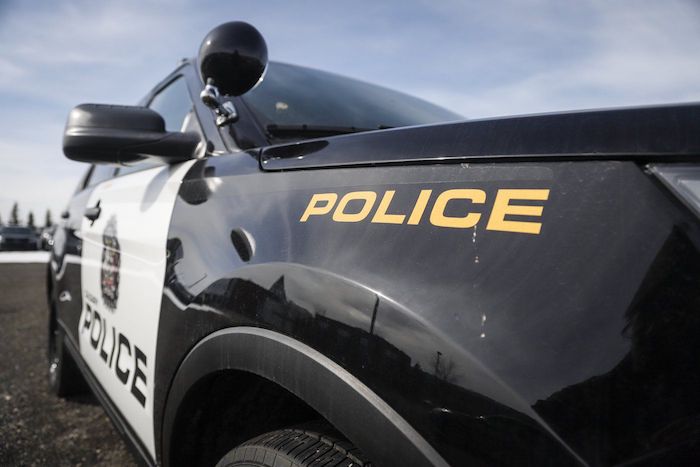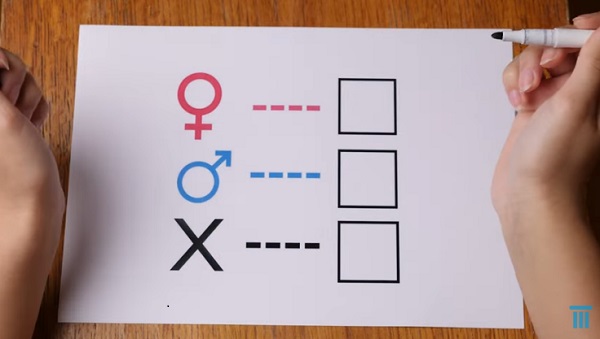Alberta
Province providing Indigenous communities and municipalities support to study future of policing

Committing to community policing
Alberta’s government will ensure Indigenous communities and municipalities have the support they need to study what kind of police service best meets their local needs.
Every Albertan should feel safe and secure in their communities and every community should be able to choose a policing model that meets their needs. Alberta’s government is investing in increased community safety by providing $6 million over two years for Indigenous and Municipal Police Transition Study Grants. These grants would provide Indigenous communities and municipalities with up to $30,000 each toward an independent study to determine if a local, self-administered police service or a regional policing model would be a better fit for their citizens.
“No one knows a community’s needs better than the people who live there. This funding will empower municipalities to explore different policing models that will improve public safety and address their community’s unique needs.”
The Indigenous and Municipal Police Transition Study Grants were created to assist communities interested in exploring different policing models. The grants will help communities cover the cost of conducting necessary research into local public safety needs, gaps, capital requirements and transition considerations.
To date, Public Safety and Emergency Services has received grant applications from 13 communities that are interested in a different policing model to meet their needs. The department is reviewing these applications and working with these and other communities that have expressed interest in applying.
“This funding provides municipalities with an excellent opportunity to study how best to meet their communities’ local and regional policing needs.”
Alberta’s government supports a community’s choice to determine what is best for its citizens, and assisting with the study and development of alternate policing models will help address the government’s public safety concerns. Every community has distinct needs, and each is in the best position to determine which policing model is best for them.
Budget 2023 secures Alberta’s future by transforming the health-care system to meet people’s needs, supporting Albertans with the high cost of living, keeping our communities safe and driving the economy with more jobs, quality education and continued diversification.
Quick facts
- Under Alberta’s Police Act, towns and cities with populations greater than 5,000 are responsible for their own policing.
- The Police Act gives municipalities the option of having their own police service, forming a regional policing arrangement or contracting for provincial policing services (i.e., the RCMP under Alberta’s provincial police service agreement).
- Under an agreement reached in September 2022, the Siksika Nation will get its own self-administered police service. Siksika developed a business case in 2021 with assistance from a $30,000 provincial government grant.
- Grande Prairie city council voted in March to create a municipal police service that will take over local policing from the RCMP.
- Over the next two years, Alberta will provide Grande Prairie with a $9.7-million grant to establish a local police service.
2025 Federal Election
Next federal government should recognize Alberta’s important role in the federation

From the Fraser Institute
By Tegan Hill
With the tariff war continuing and the federal election underway, Canadians should understand what the last federal government seemingly did not—a strong Alberta makes for a stronger Canada.
And yet, current federal policies disproportionately and negatively impact the province. The list includes Bill C-69 (which imposes complex, uncertain and onerous review requirements on major energy projects), Bill C-48 (which bans large oil tankers off British Columbia’s northern coast and limits access to Asian markets), an arbitrary cap on oil and gas emissions, numerous other “net-zero” targets, and so on.
Meanwhile, Albertans contribute significantly more to federal revenues and national programs than they receive back in spending on transfers and programs including the Canada Pension Plan (CPP) because Alberta has relatively high rates of employment, higher average incomes and a younger population.
For instance, since 1976 Alberta’s employment rate (the number of employed people as a share of the population 15 years of age and over) has averaged 67.4 per cent compared to 59.7 per cent in the rest of Canada, and annual market income (including employment and investment income) has exceeded that in the other provinces by $10,918 (on average).
As a result, Alberta’s total net contribution to federal finances (total federal taxes and payments paid by Albertans minus federal money spent or transferred to Albertans) was $244.6 billion from 2007 to 2022—more than five times as much as the net contribution from British Columbians or Ontarians. That’s a massive outsized contribution given Alberta’s population, which is smaller than B.C. and much smaller than Ontario.
Albertans’ net contribution to the CPP is particularly significant. From 1981 to 2022, Alberta workers contributed 14.4 per cent (on average) of total CPP payments paid to retirees in Canada while retirees in the province received only 10.0 per cent of the payments. Albertans made a cumulative net contribution to the CPP (the difference between total CPP contributions made by Albertans and CPP benefits paid to retirees in Alberta) of $53.6 billion over the period—approximately six times greater than the net contribution of B.C., the only other net contributing province to the CPP. Indeed, only two of the nine provinces that participate in the CPP contribute more in payroll taxes to the program than their residents receive back in benefits.
So what would happen if Alberta withdrew from the CPP?
For starters, the basic CPP contribution rate of 9.9 per cent (typically deducted from our paycheques) for Canadians outside Alberta (excluding Quebec) would have to increase for the program to remain sustainable. For a new standalone plan in Alberta, the rate would likely be lower, with estimates ranging from 5.85 per cent to 8.2 per cent. In other words, based on these estimates, if Alberta withdrew from the CPP, Alberta workers could receive the same retirement benefits but at a lower cost (i.e. lower payroll tax) than other Canadians while the payroll tax would have to increase for the rest of the country while the benefits remained the same.
Finally, despite any claims to the contrary, according to Statistics Canada, Alberta’s demographic advantage, which fuels its outsized contribution to the CPP, will only widen in the years ahead. Alberta will likely maintain relatively high employment rates and continue to welcome workers from across Canada and around the world. And considering Alberta recorded the highest average inflation-adjusted economic growth in Canada since 1981, with Albertans’ inflation-adjusted market income exceeding the average of the other provinces every year since 1971, Albertans will likely continue to pay an outsized portion for the CPP. Of course, the idea for Alberta to withdraw from the CPP and create its own provincial plan isn’t new. In 2001, several notable public figures, including Stephen Harper, wrote the famous Alberta “firewall” letter suggesting the province should take control of its future after being marginalized by the federal government.
The next federal government—whoever that may be—should understand Alberta’s crucial role in the federation. For a stronger Canada, especially during uncertain times, Ottawa should support a strong Alberta including its energy industry.
Alberta
Province announces plans for nine new ‘urgent care centres’ – redirecting 200,000 hospital visits

Expanding urgent care across Alberta
If passed, Budget 2025 includes $17 million in planning funds to support the development of urgent care facilities across the province.
As Alberta’s population grows, so does the demand for health care. In response, the government is making significant investments to ensure every Albertan has access to high-quality care close to home. Currently, more than 35 per cent of emergency department visits are for non-life-threatening conditions that could be treated at urgent care centres. By expanding these centres, Alberta’s government is enhancing the health care system and improving access to timely care.
If passed, Budget 2025 includes $15 million to support plans for eight new urgent care centres and an additional $2 million in planning funds for an integrated primary and urgent care facility in Airdrie. These investments will help redirect up to 200,000 lower-acuity emergency department visits annually, freeing up capacity for life-threatening cases, reducing wait times and improving access to care for Albertans.
“More people are choosing to call Alberta home, which is why we are taking action to build capacity across the health care system. Urgent care centres help bridge the gap between primary care and emergency departments, providing timely care for non-life-threatening conditions.”
“Our team at Infrastructure is fully committed to leading the important task of planning these eight new urgent care facilities across the province. Investments into facilities like these help strengthen our communities by alleviating strains on emergency departments and enhance access to care. I am looking forward to the important work ahead.”
The locations for the eight new urgent care centres were selected based on current and projected increases in demand for lower-acuity care at emergency departments. The new facilities will be in west Edmonton, south Edmonton, Westview (Stony Plain/Spruce Grove), east Calgary, Lethbridge, Medicine Hat, Cold Lake and Fort McMurray.
“Too many Albertans, especially those living in rural communities, are travelling significant distances to receive care. Advancing plans for new urgent care centres will build capacity across the health care system.”
“Additional urgent care centres across Alberta will give Albertans more options for accessing the right level of care when it’s needed. This is a necessary and substantial investment that will eventually ease some of the pressures on our emergency departments.”
The remaining $2 million will support planning for One Health Airdrie’s integrated primary and urgent care facility. The operating model, approved last fall, will see One Health Airdrie as the primary care operator, while urgent care services will be publicly funded and operated by a provider selected through a competitive process.
“Our new Airdrie facility, offering integrated primary and urgent care, will provide same-day access to approximately 30,000 primary care patients and increase urgent care capacity by around 200 per cent, benefiting the entire community and surrounding areas. We are very excited.”
Alberta’s government will continue to make smart, strategic investments in health facilities to support the delivery of publicly funded health programs and services to ensure Albertans have access to the care they need, when and where they need it.
Budget 2025 is meeting the challenge faced by Alberta with continued investments in education and health, lower taxes for families and a focus on the economy.
Quick facts
- The $2 million in planning funds for One Health Airdrie are part of a total $24-million investment to advance planning on several health capital initiatives across the province through Budget 2025.
- Alberta’s population is growing, and visits to emergency departments are projected to increase by 27 per cent by 2038.
- Last year, Alberta’s government provided $8.4 million for renovations to the existing Airdrie Community Health Centre.
Related information
-

 Uncategorized1 day ago
Uncategorized1 day agoPoilievre on 2025 Election Interference – Carney sill hasn’t fired Liberal MP in Chinese election interference scandal
-

 Business2 days ago
Business2 days agoCuba has lost 24% of it’s population to emigration in the last 4 years
-

 2025 Federal Election21 hours ago
2025 Federal Election21 hours agoChinese Election Interference – NDP reaction to bounty on Conservative candidate
-

 2025 Federal Election1 day ago
2025 Federal Election1 day ago2025 Election Interference – CCP Bounty on Conservative Candidate – Carney Says Nothing
-

 2025 Federal Election11 hours ago
2025 Federal Election11 hours agoChina Election Interference – Parties Received Security Briefing Days Ago as SITE Monitors Threats to Conservative Candidate Joe Tay
-

 2025 Federal Election1 day ago
2025 Federal Election1 day ago2025 Federal Election Interference from China! Carney Pressed to Remove Liberal MP Over CCP Bounty Remark
-

 Aristotle Foundation2 days ago
Aristotle Foundation2 days agoCanada has the world’s MOST relaxed gender policy for minors
-

 2025 Federal Election14 hours ago
2025 Federal Election14 hours agoHong Kong-Canadian Groups Demand PM Carney Drop Liberal Candidate Over “Bounty” Remark Supporting CCP Repression




